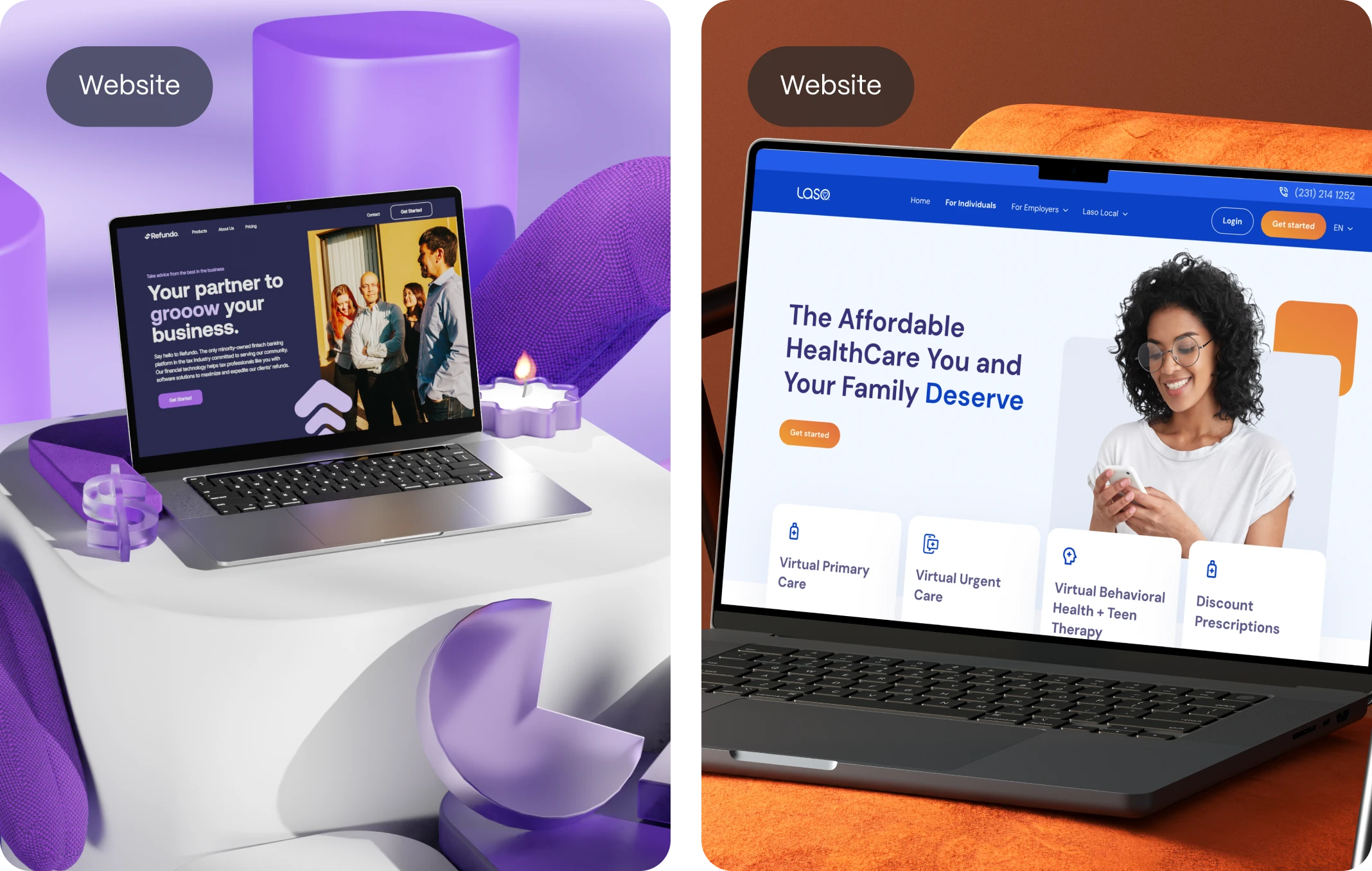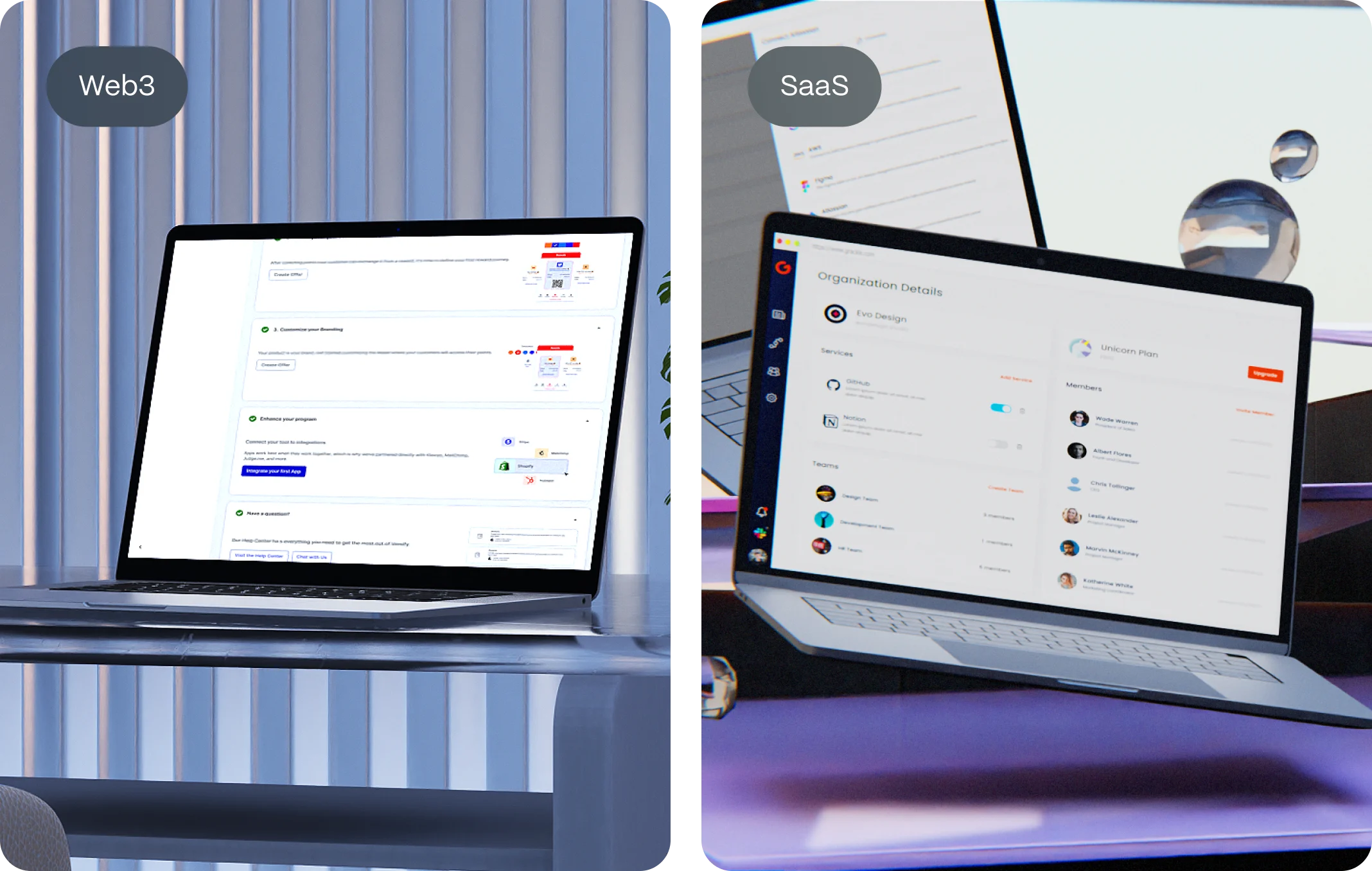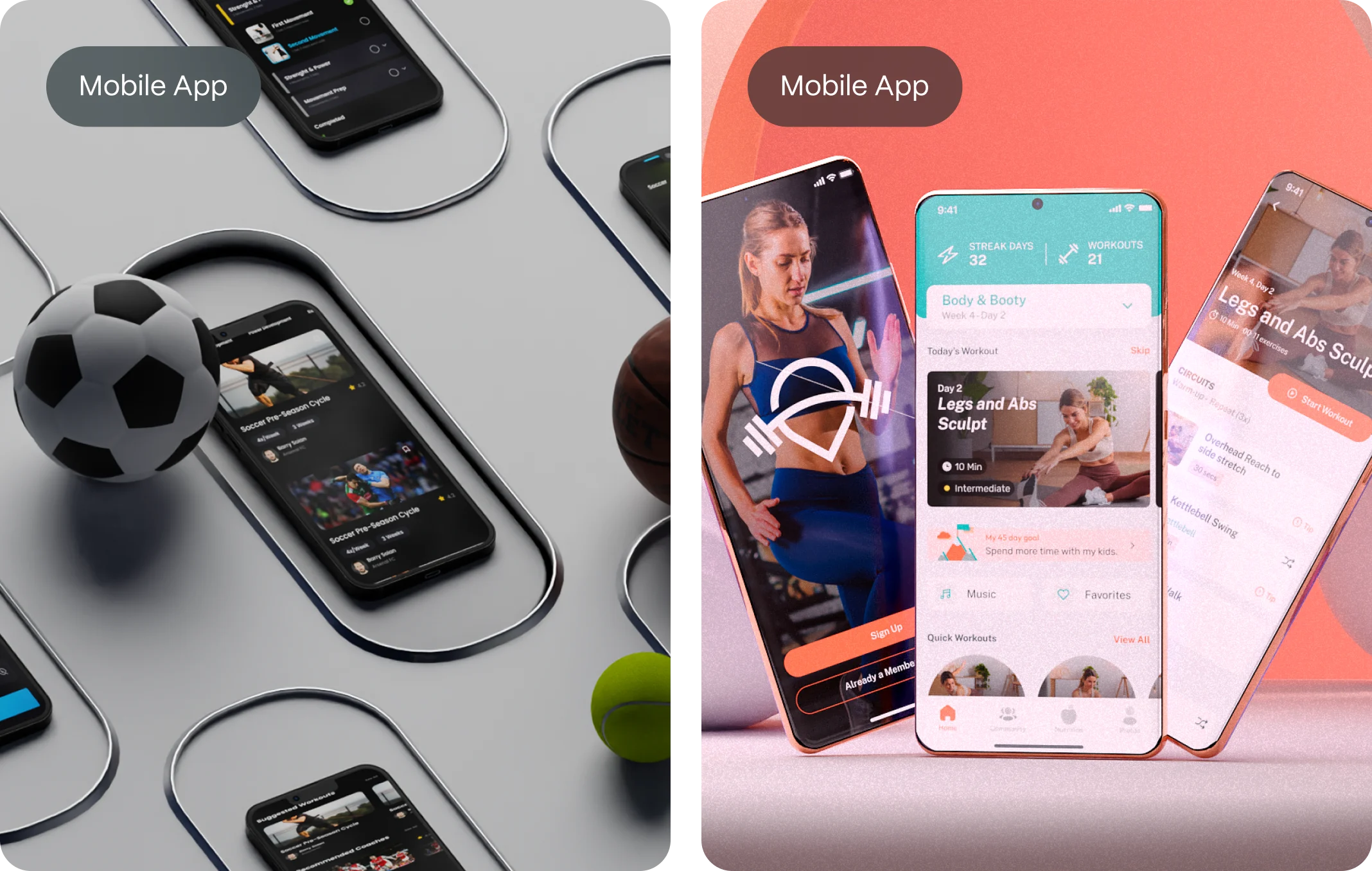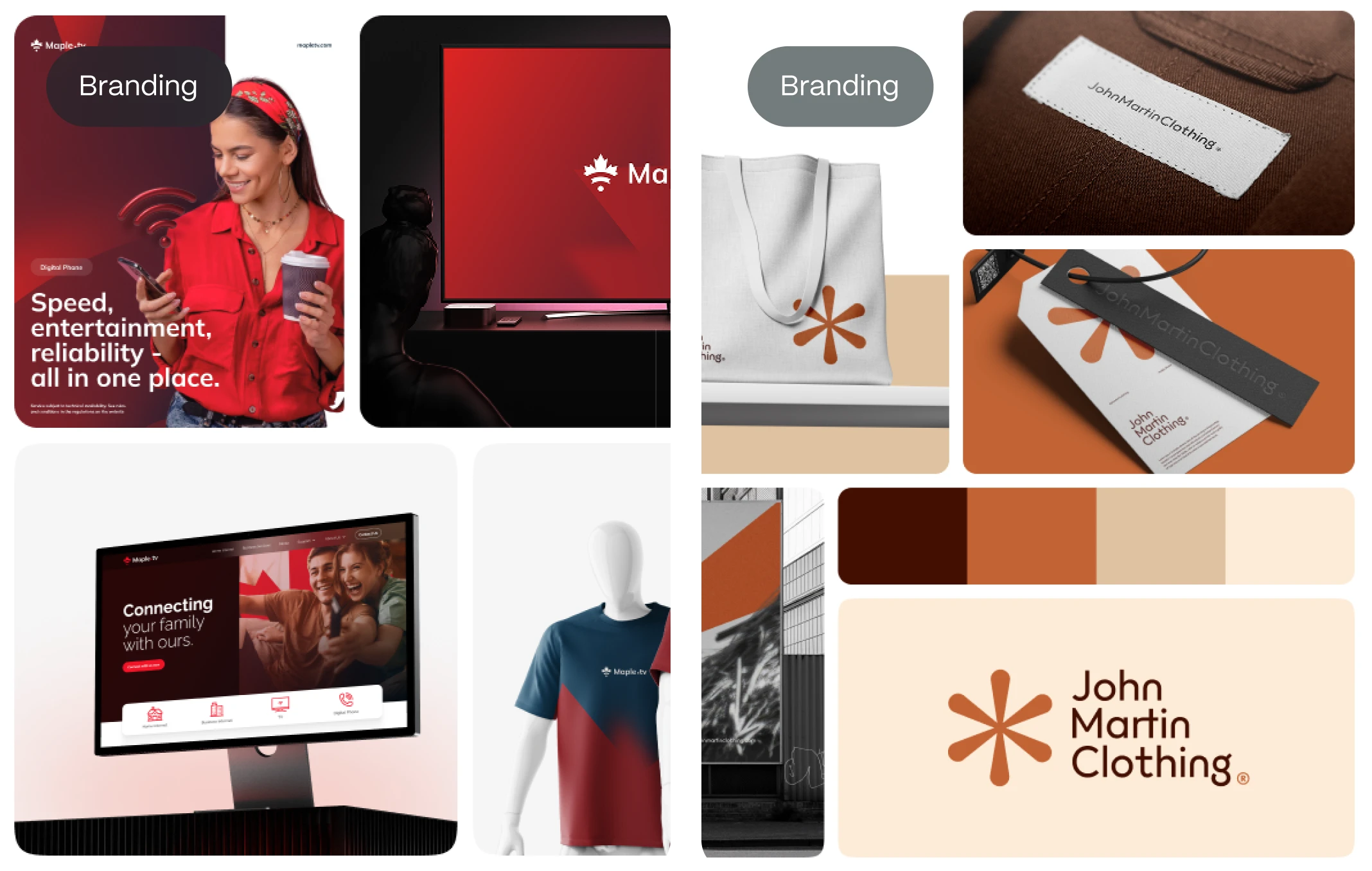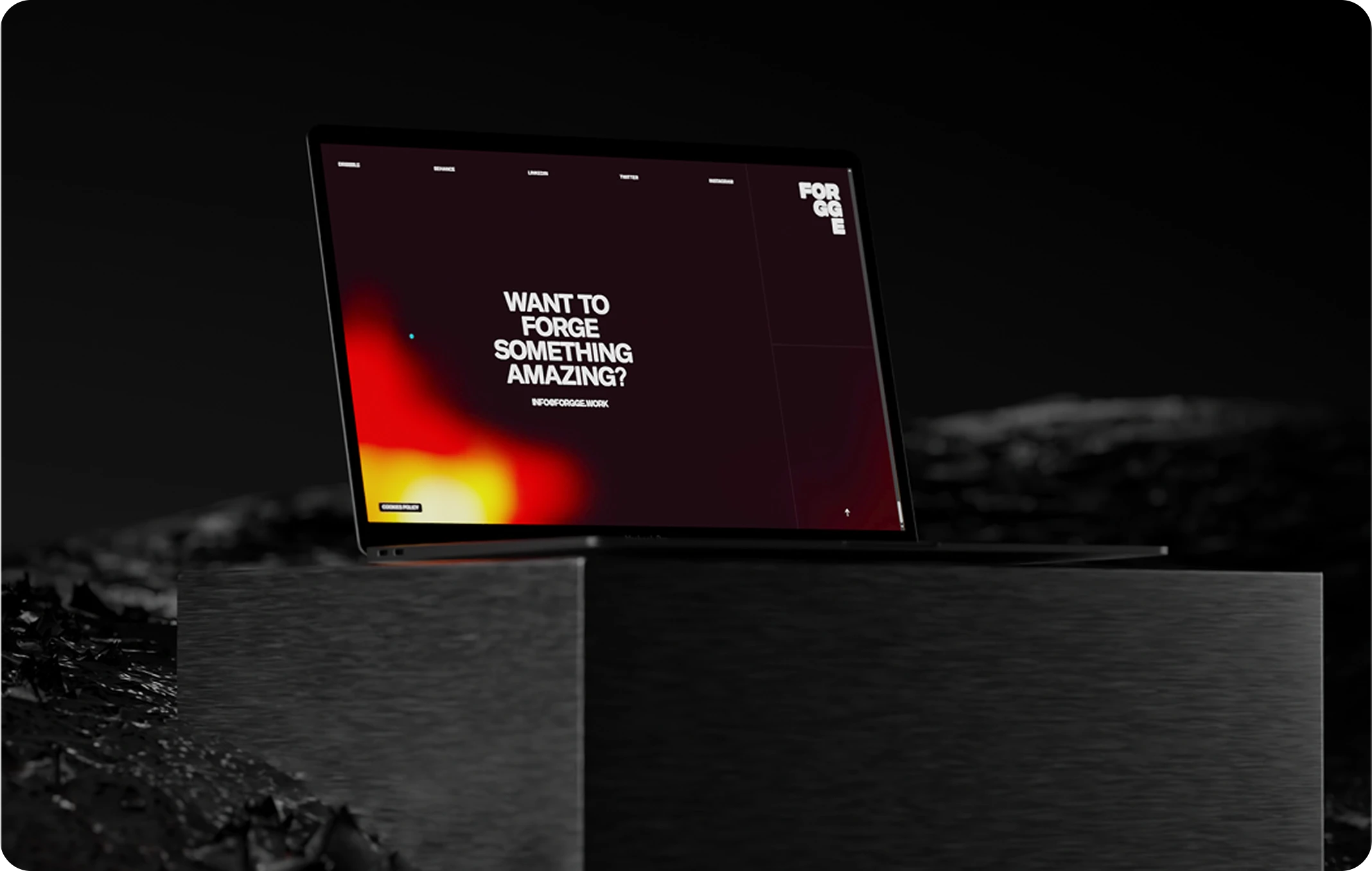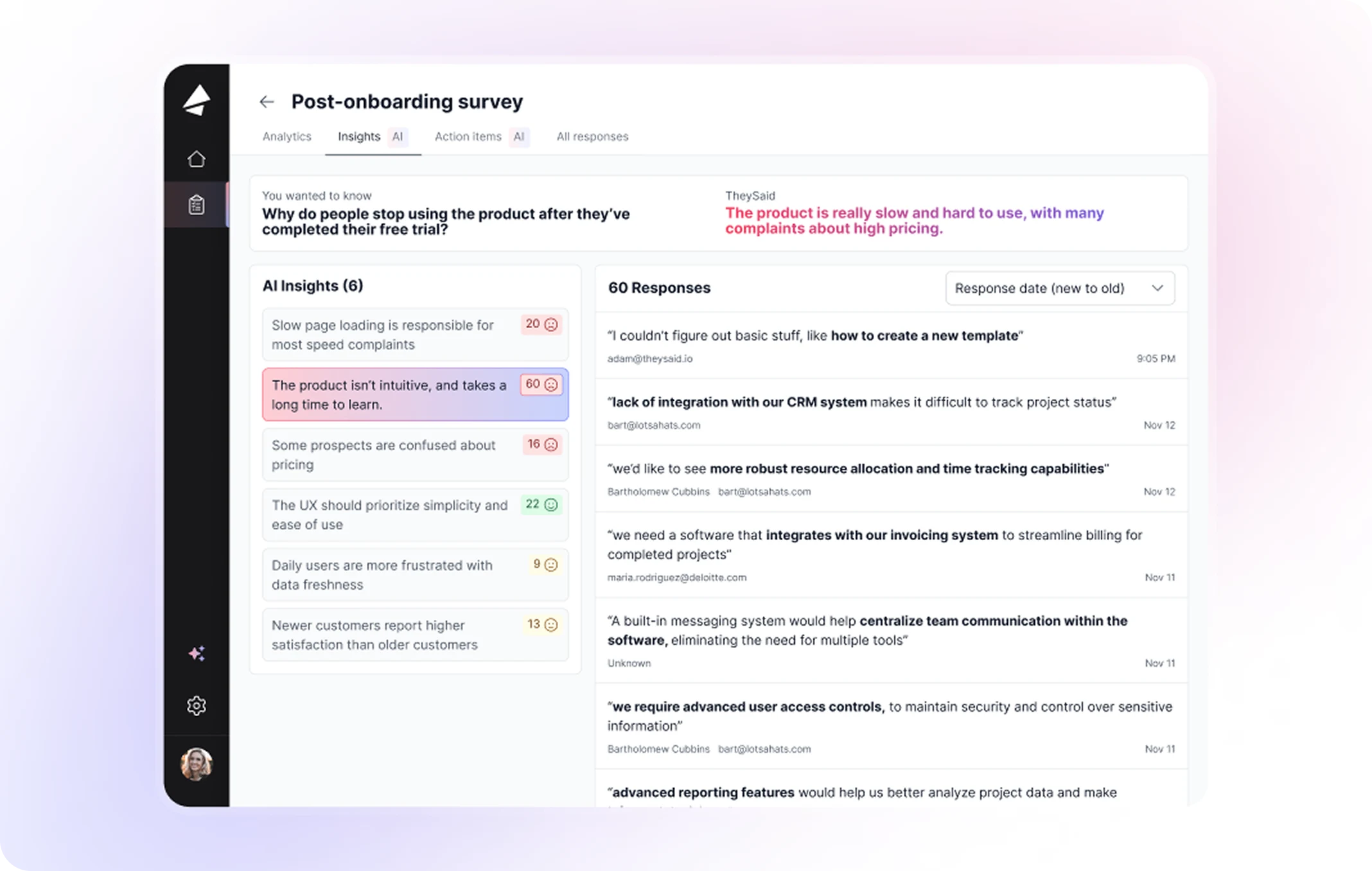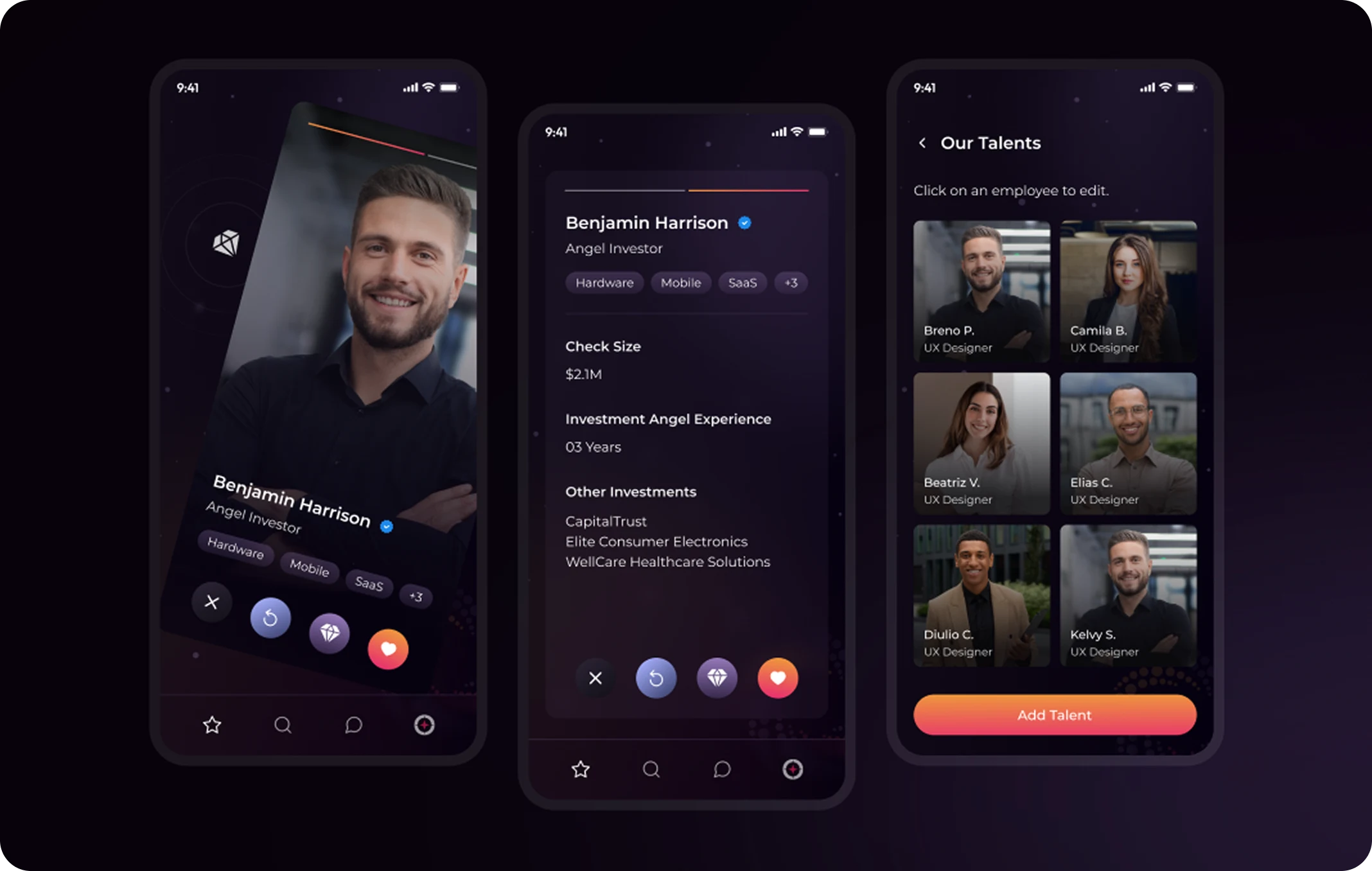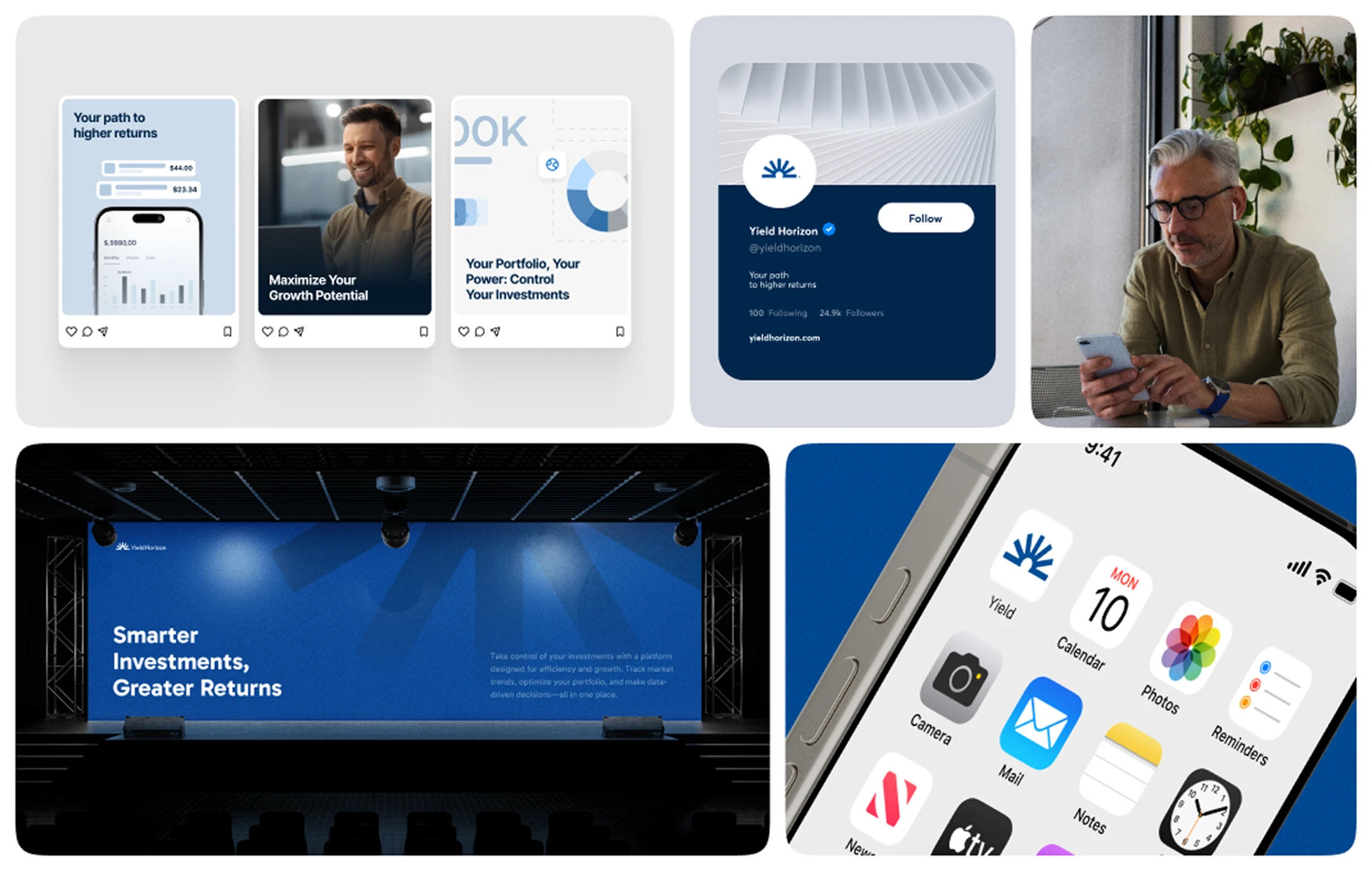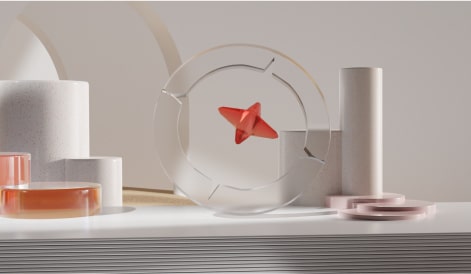In a crowded digital marketplace, where brands compete for attention, having a unique and memorable brand personality is more important than ever. Consumers don’t just buy products—they connect with brands that feel relatable, authentic, and aligned with their values.
But what exactly is brand personality? And how can businesses craft one that leaves a lasting impression?
In this guide, we’ll break down the key elements of brand personality, provide real-world examples, and explain why it’s a crucial aspect of building customer loyalty and brand differentiation.
What Is Brand Personality?
Brand personality is the set of human traits and characteristics that define how a brand communicates and connects with its audience. It influences tone, messaging, visuals, and overall brand perception, shaping how customers feel about a company.
A strong brand personality creates:
- Emotional connection – People relate more to brands that have human-like traits.
- Consistency – Helps maintain a cohesive voice and image across platforms.
- Differentiation – Stands out from competitors with a unique identity.
Example: Think of Apple—its personality is sleek, innovative, and premium, while Nike’s personality is bold, energetic, and motivational.
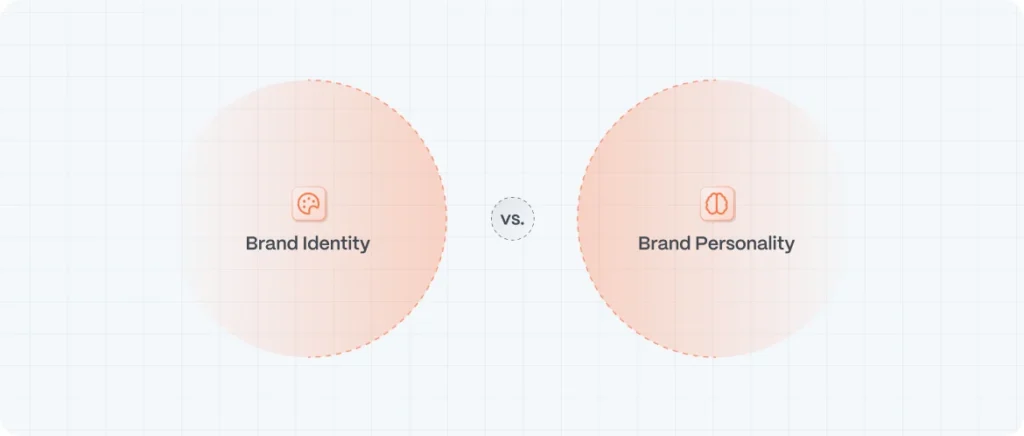
Brand Personality vs. Brand Identity: What’s the Difference?
Many confuse brand personality with brand identity, but they are distinct:
Brand Identity = The visual elements (logo, typography, color palette).
Brand Personality = The emotions, voice, and characteristics associated with the brand.
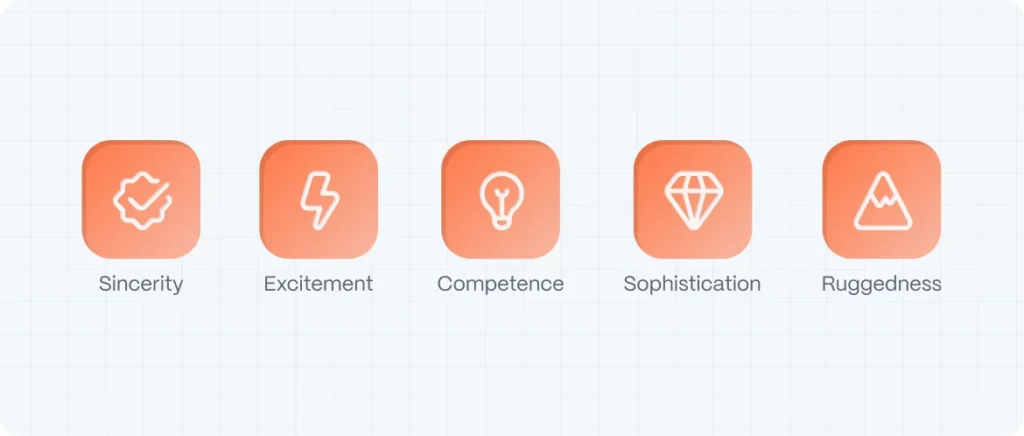
The 5 Brand Personality Dimensions (Aaker’s Model)
Psychologist Jennifer Aaker developed a framework that categorizes brand personalities into five key dimensions. Most successful brands fit into one or a combination of these categories:
1. Sincerity – Warm, Honest & Down-to-Earth
Example Brands: Coca-Cola, Patagonia, Dove
Authentic, family-friendly, emotionally driven messaging.
Often associated with trust, sustainability, and personal connection.
2. Excitement – Bold, Energetic & Playful
Example Brands: Red Bull, Tesla, TikTok
High-energy, daring, cutting-edge brands that focus on adventure and fun.
3. Competence – Reliable, Intelligent & Professional
Example Brands: Microsoft, IBM, Volvo
Professional, knowledgeable brands that emphasize expertise and security.
4. Sophistication – Luxurious, Elegant & Exclusive
Example Brands: Chanel, Rolex, Mercedes-Benz
High-end, premium branding associated with quality and exclusivity.
5. Ruggedness – Outdoorsy, Tough & Adventurous
Example Brands: Jeep, Harley-Davidson, The North Face
Strong, durable brands built around resilience and freedom.
How to Define Your Brand Personality
Step 1: Identify Your Brand’s Core Values
Ask yourself:
- What does our brand stand for?
- What kind of customers do we want to attract?
- What emotions should our brand evoke?
Step 2: Determine Your Brand’s Archetype
Brands often fall into one of 12 brand archetypes, such as:
- The Hero (Nike) – Inspires courage and achievement.
- The Creator (Adobe) – Driven by innovation and originality.
- The Explorer (Jeep) – Adventure-seeking, pushing boundaries.
Step 3: Develop Your Brand Voice & Messaging
Your tone and language should reflect your brand’s personality.
- A playful brand uses humor and informal language (like Wendy’s on Twitter).
- A luxury brand communicates with elegance and exclusivity (like Louis Vuitton).
Step 4: Align Your Visual Identity
A brand’s visuals should reinforce its personality through:
- Color psychology (e.g., Red = passion, Blue = trust).
- Typography choices (modern vs. classic fonts).
- Imagery and logo style that matches the brand’s voice.
Step 5: Maintain Consistency Across All Platforms
Consistency builds trust and recognition. Ensure your website, social media, packaging, and advertising all reflect the same brand personality.
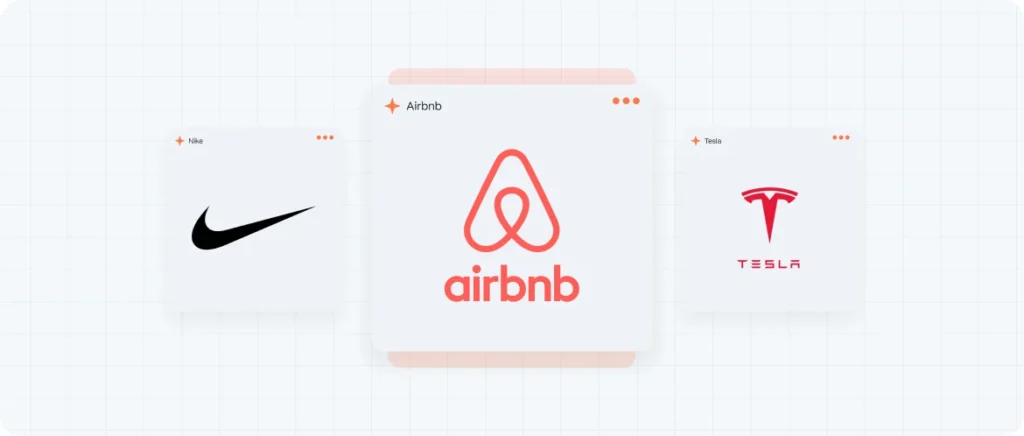
Real-World Examples of Strong Brand Personalities
1. Airbnb – Warm, Human, & Inclusive
- Uses friendly, welcoming messaging.
- Visuals emphasize authentic experiences and storytelling.
- Sincerity-driven brand personality.
2. Tesla – Bold, Innovative & Disruptive
- Messaging conveys innovation, technology, and risk-taking.
- Uses a minimalistic design approach to reflect its sleek, futuristic brand.
- Falls under the Excitement brand personality.
3. Nike – Motivational & Bold
- Tagline: “Just Do It.”
- Messaging is empowering, confident, and action-driven.
- A classic Hero brand personality.
Why Brand Personality Matters for Business Growth
A strong brand personality helps businesses:
- Create customer loyalty – 86% of consumers prefer brands with relatable values.
- Stand out in a crowded market – Personality differentiates brands.
- Increase engagement – Brands with distinct personalities get higher social media interactions.
- Boost sales & conversions – Emotionally connected customers are 60% more valuable to brands (Harvard Business Review).
How Evo Design Studio Helps You Build a Powerful Brand Personality
At Evo Design Studio, we specialize in crafting brand personalities that resonate with audiences and drive business success.
- Brand Strategy & Positioning – Define your unique voice and identity.
- Visual Identity Development – Logo, color schemes, typography.
- Tone & Messaging Strategy – Crafting a distinct brand voice.
- Complete Brand Guidelines – Ensuring consistency across platforms.
📌 Ready to create a brand personality that connects? Let’s build something remarkable together.

